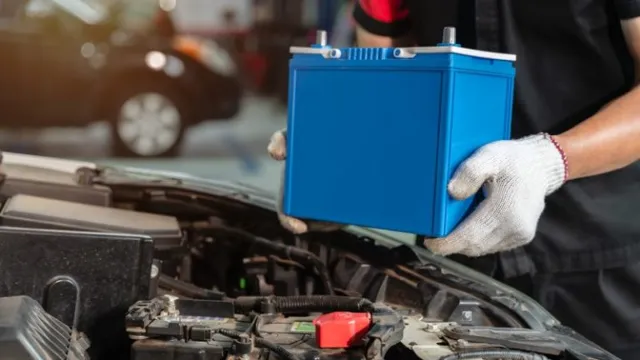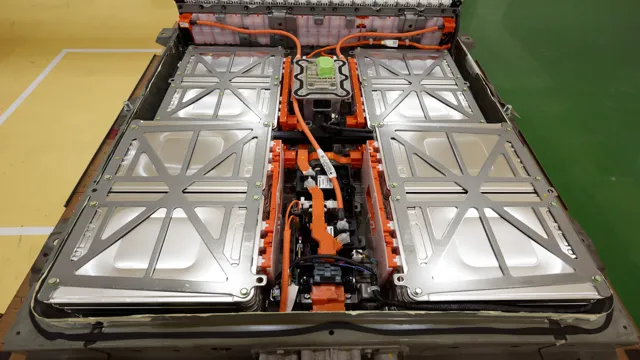Unlocking the Brine Key: The Secret to Affordable and Durable Electric Car Batteries
If you’re someone who constantly worries about the range of your electric vehicle, then you might want to pay attention to this. Researchers have discovered that brine, the salty solution used for pickling vegetables and curing meat, might just be the key to creating cheaper and longer-lasting electric car batteries. Yes, you read that right.
Brine, which is essentially a waste product of many industrial processes, can potentially revolutionize the electric vehicle industry. The research team found that by using a brine solution, they were able to create a protective coating over the electrodes in lithium-ion batteries, increasing their lifespan and stability. But why brine, you ask? Well, the answer lies in its high concentration of magnesium chloride.
When this is added to the battery, it forms a coating over the electrode that protects it from corrosion and degradation. This means that the battery can be charged and discharged more times without losing its capacity, making it last longer. Furthermore, the use of brine also has a positive impact on the environment.
Since it is a byproduct of many industrial processes, using it for battery manufacturing would mean fewer resources spent on sourcing and creating new materials. This could lead to a significant reduction in the environmental footprint of electric cars. While this discovery is still in its early stages, it brings hope for a future with more efficient and affordable electric vehicles.
Who would have thought that something as simple as brine could hold the key to a sustainable future?
The Problem with Current Lithium-ion Batteries
When it comes to electric cars, one of the biggest problems is the cost and longevity of the batteries. Currently, lithium-ion batteries are the go-to option because of their ability to store and release energy efficiently. However, they have a few downsides that have been a major obstacle in making these cars more affordable and widely adopted.
For starters, lithium-ion batteries require expensive materials and manufacturing processes that drive up the cost of the final product. Plus, they have a relatively short lifespan compared to traditional car batteries, which means they need to be replaced every few years. But now, researchers believe they have found a solution in brine.
By using brine instead of the usual electrolytes, they have found a way to create cheaper, longer-lasting batteries that could revolutionize the industry. Instead of relying on expensive materials, the brine-based batteries would use saltwater to conduct electricity, reducing the cost dramatically. And because the brine doesn’t break down as quickly as traditional electrolytes, the batteries could last for years longer, making them a more cost-effective option for consumers.
In short, brine could be the key to making electric cars more affordable and practical for the average person.
Short Lifespan
The current lithium-ion batteries have a major problem: their short lifespan. These batteries, which are found in many devices, including laptops and smartphones, tend to lose their capacity over time. This is due to the fact that lithium ions move back and forth between the battery’s two electrodes during charging and discharging, which causes the electrodes to degrade over time.
Furthermore, the electrodes can crack due to repeated expansion and contraction during use, which further contributes to the battery’s short lifespan. As a result, consumers are forced to replace their batteries more frequently, which is not only expensive but also contributes to electronic waste. To solve this problem, researchers are exploring new materials and designs for batteries that are more durable and can maintain their capacity over a longer period of time.
By developing batteries that last longer, we can reduce our electronic waste and make our devices more sustainable in the long run.
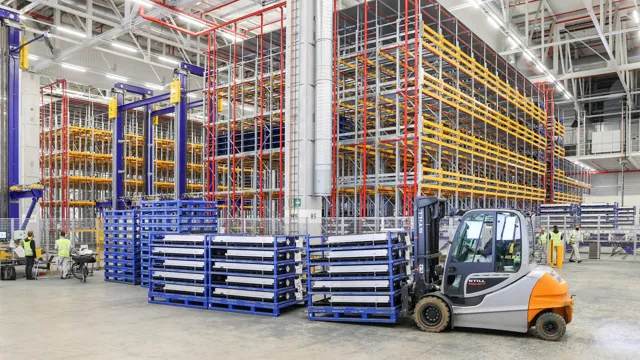
High Cost
The high cost of lithium-ion batteries is a major issue in today’s world. While these batteries are the go-to technology for powering everything from smartphones to electric vehicles, their production and maintenance costs can be prohibitively expensive. One reason for this is the raw materials used in creating lithium-ion batteries, which can be difficult and expensive to extract and refine.
Additionally, the process of manufacturing and recycling these batteries is complicated and requires specialized equipment and knowledge. As a result, prices for lithium-ion batteries can remain high even as demand for them continues to grow. However, with the development of new battery technologies and improved manufacturing processes, we may be able to address these high costs and make battery power more accessible for everyone.
The Brine Solution
When it comes to the future of electric cars, the key to cheaper and longer-lasting batteries may lie in the brine solution. Brine, a mixture of salt and water, has been found to be a viable alternative to traditional lithium-ion batteries, which have been criticized for being expensive and lacking in efficiency. Brine’s abundance and low cost make it an attractive option for producing batteries on a large scale.
Additionally, brine batteries have a low environmental impact and can be easily recycled. While there are still some challenges to be overcome, the potential of brine batteries is exciting and could be a game-changer in the world of electric vehicles. So, what do you think? Could brine be the key to unlocking the potential of electric cars?
Abundant and Cheap
When it comes to finding an abundant and cheap solution, nothing can beat the power of brine. Brine is a mixture of water and salt, and it is readily available all over the world. This solution is incredibly cheap to produce as it only requires two readily available ingredients, salt and water.
The brine solution has proven to be useful in several applications, from industrial cooling to food preservation. Moreover, it is environmentally friendly as it is natural, renewable, and non-toxic. In essence, the benefits of brine solutions are endless, and they continue to be discovered through ongoing research and experimentation.
So, next time you’re looking for an inexpensive and natural solution, consider using brine; it could be the perfect solution to your problem.
High Energy Density
High Energy Density The Brine Solution is a revolutionary approach to high energy density storage that harnesses the power of saltwater to create a more sustainable and efficient energy grid. This innovative solution uses the natural chemical properties of brine, a solution of salt in water, to store and release large amounts of energy on demand. By using a specialized electrolyte solution, the Brine Solution allows for the quick and efficient transfer of electric charge, providing a reliable and cost-effective way to store energy.
Additionally, the Brine Solution is eco-friendly and poses no threat to the environment, making it a promising alternative to traditional energy storage methods. With its many benefits and potential applications, the Brine Solution is quickly becoming a game-changer in the world of energy storage.
Improved Safety
When it comes to road safety, there are various factors that need to be considered. One essential aspect is the usage of brine solution on the roads during the winter months. Brine solution is a mixture of salt and water that is sprayed onto the road before a snowstorm hits.
The brine solution not only helps in preventing the snow from sticking onto the roads, but it also improves road safety. The use of brine solution reduces the braking distance and provides better traction for the vehicles. This results in fewer accidents and fatalities on the road.
Investing in improved road safety is crucial, and the use of brine solution is a simple yet effective way to achieve this. Brine solution costs less than rock salt, and it is more environmentally friendly since it uses less salt, reducing the negative impact on the environment. Additionally, brine solution is quicker to apply to the roads, making it more efficient and faster to clear snow-covered roads.
Using brine solution is just one way that we can work towards improving road safety. By investing in these kinds of solutions, we can greatly reduce the number of accidents on the road. So next time you see a salty, wet road, remember that it is not just because of snow; it is due to the simple yet incredibly effective brine solution that keeps us safe on our journeys.
Research and Development
The search for an efficient and cost-effective electric car battery has been a driving force in the world of research and development. Recently, scientists have turned to a surprising source for a solution – brine. Brine, which is a solution of salt and water, has been found to hold the key to creating longer-lasting batteries for electric cars.
The high-concentration of lithium found in brine offers a more affordable and sustainable solution to the traditional method of extracting lithium through mining. By using brine, the process of lithium extraction is made simpler and more environmentally friendly. This discovery could revolutionize the electric car industry by making the production of electric car batteries more affordable and environmentally sustainable.
If successful, this could be a game-changer for the electric car industry, promising a future filled with cheaper and longer-lasting electric cars, paving the way for a greener and more sustainable world.
Current Progress
Our current progress at the research and development stage is moving steadily forward. We are continuously exploring new techniques and tools to enhance the quality and efficiency of our work. Our team is dedicated to staying up to date with the latest developments in the field, and we are constantly experimenting with new approaches to achieve our desired outcomes.
As we progress, we are discovering new opportunities for growth and innovation. Our research and development efforts are primary to building new products and services that meet the ever-changing needs of our customers. Our approach is collaborative, and we work closely with our partners and stakeholders to ensure that we are moving in the right direction.
By involving everyone in the process, we are better able to anticipate potential problems and find solutions that benefit everyone involved. A central focus of our research and development is compliance and safety. We understand that this is a critical area that requires our full attention.
That’s why we are always exploring new techniques and technologies to ensure that our products and services meet the highest safety and quality standards. Our goal is to create innovative products and services that make a difference in people’s lives. We understand that achieving this requires a willingness to take calculated risks and embrace new ideas.
However, we also know the importance of being patient and methodical in our approach. By doing so, we can ensure that we are making the best decisions for our business and our customers. In conclusion, we are making excellent progress in our research and development efforts.
We are committed to continuous growth and evolution and look forward to sharing our results with the world. Our team is dedicated to staying informed and exploring new ideas, ensuring that we are always at the forefront of innovation and improvement. At the heart of our work is a dedication to creating products and services that have a positive impact on the world, and we are excited about the possibilities that the future holds.
Future Potential
When it comes to the future potential of any industry, research and development play a critical role in unlocking new opportunities. This holds true for just about any field, but it’s especially true for AI. As machine learning algorithms become more advanced and capable of handling increasingly complex tasks, the potential for what they can achieve is virtually limitless.
Many companies are investing heavily in research and development in order to stay ahead of the curve and explore new possibilities. This includes everything from developing new algorithms to testing and refining existing ones. By doing so, they’re not only improving existing applications for AI, but also opening up entirely new fields of possibility.
From self-driving cars to medical diagnoses, the future of AI looks incredibly bright. With continued research and development, it’s certain that we’ll see even more exciting breakthroughs in the years to come.
Impact on the Electric Car Industry
The electric car industry is constantly seeking ways to improve the range of their vehicles, while keeping costs down. That’s where lithium brine comes in. Recent breakthroughs have found that lithium brine, a saltwater solution, holds the key to cheaper and longer-lasting electric car batteries.
Lithium is a critical component in producing lithium-ion batteries, which power electric vehicles. The challenge has been finding a cost-effective way to extract the lithium from the earth, as traditional mining methods are both expensive and environmentally damaging. However, extracting the metal from brine is a much cleaner and more efficient process and could revolutionize the industry.
By utilizing brine, electric car manufacturers could improve their supply chains, reduce production costs, and ultimately make electric vehicles more affordable for consumers. The use of brine is gaining traction in the industry, and with further research and development, could potentially transform the way we power our vehicles.
Conclusion
In the race towards a more sustainable future, finding ways to make electric cars more affordable and efficient is crucial. Thanks to the discovery that brine is key to cheaper and longer-lasting electric car batteries, we might be one step closer to achieving that goal. Who knew that the answer to our green energy needs was hiding in our beloved pretzel condiment all along? It just goes to show that sometimes, the solution to our problems is right in front of us – we just need to look a little closer.
“
FAQs
What is brine and how is it related to electric car batteries?
Brine is a solution of salt and water that can be used to produce lithium, which is a key component in electric car batteries. By using brine instead of traditional mining methods, the cost of producing lithium can be reduced, making electric car batteries more affordable.
How does the use of brine in producing lithium affect the environment?
The use of brine in producing lithium can be more environmentally friendly than traditional mining methods, as it requires less energy and resources. However, it can also have an impact on local ecosystems and water resources if not managed properly.
Can electric car batteries made with brine last longer than those made with traditional methods?
Yes, electric car batteries made with lithium produced from brine can potentially last longer than those made with traditional methods. This is because the lithium produced from brine can be more pure and have fewer impurities that can degrade the battery over time.
Will using brine to produce lithium significantly reduce the cost of electric car batteries?
Using brine to produce lithium can help reduce the cost of electric car batteries, but it is just one factor in the overall cost of battery production. Other factors such as production scale and technological advancements will also play a role in determining the final cost of electric car batteries.

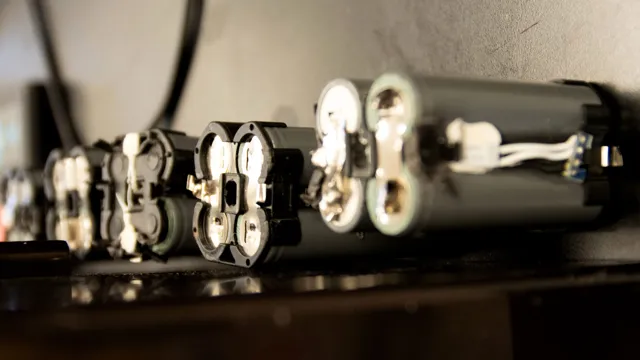
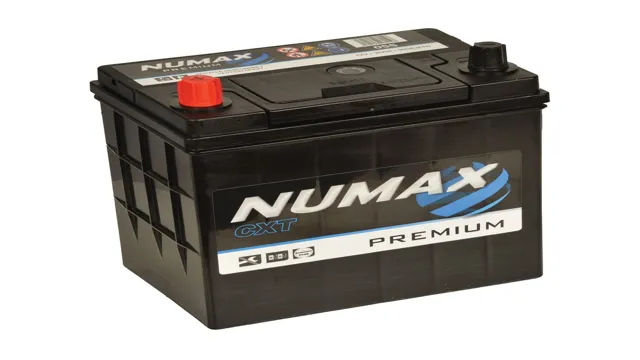
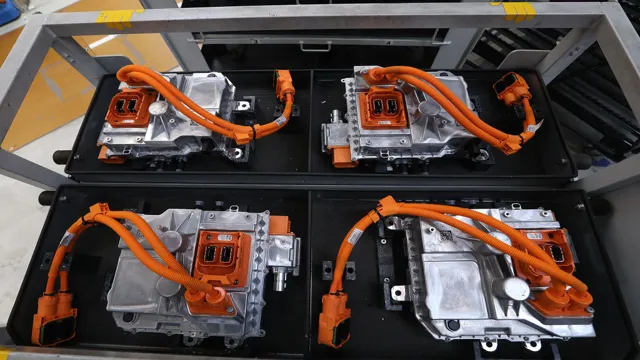
![Power Up Your Ride: Choosing the Best Battery for Your Electric Car from [Company Name]](https://electriccarwiki.com/wp-content/uploads/2023/12/battery-for-electric-car-company.webp)

